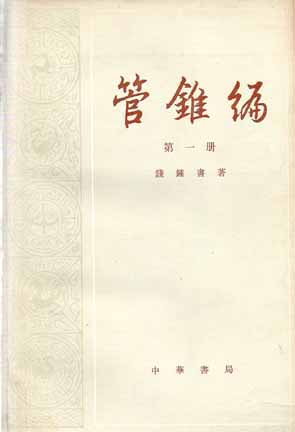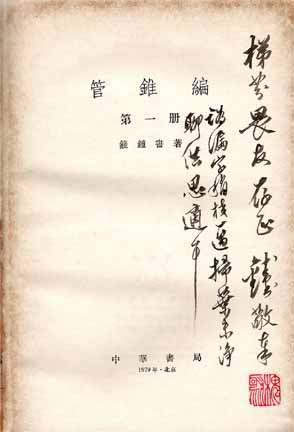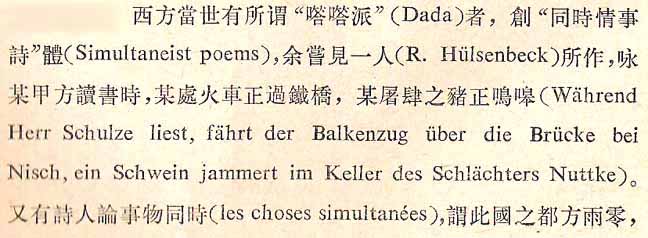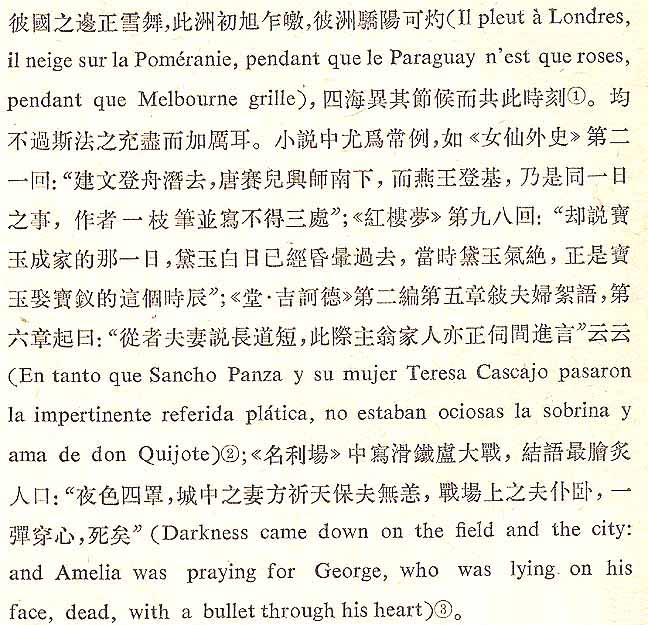Besieged Fortress - Part 2
My previous post (Part 1) began with a reference to the novel "Besieged Fortress" by Qian Zhongshu. This is a novel about small-time academia in China in the pre-communist days. Substantively, the content is perhaps no more or less interesting than western novels about academia by Malcolm Bradbury, David Lodge or John Barth's Giles Goatboy.
So what explains the extraordinary esteem that this novel is held in? Part of the reason is that this novel appeared in a historical vacuum and is perhaps the only novel from the 1930s/1940s that has endured. Many of the novels of that era were just romantic pulp fiction hacked for a fast buck and faded from memory just as quickly.
I suggest that the more important reason is the person of Qian Zhongshu himself. For anyone who is familiar with his other works, this was an erudite and learned man who was head and shoulders above his contemporaries. Nevertheless, his other works are impenetratable to most people. Thus, his only accessible novel becomes heralded in tribute to this extraordinary person.
Putting aside that novel, what might be considered to be his major achievement by the cognescenti? The consensus seems to be the collection of essays known as "Pipe-Awl Collection (Guanzhui Pian ) that was written in the 1970s. The English version of the book, translated by Qian himself, is "Limited Views: Essays on Ideas and Letters" published by Harvard University Press in 1998. On my bookshelf, I have the first edition of the book in four volumes published in 1979 in Beijing. The inside front cover has an inscription from Qian to my father.


Here are some reviews of the book from Amazon.com:
Qian's extraordinary command of the languages and literatures of six or seven literary traditions should leave modern cross-cultural studies in tears of shame.
Qian carried out what Walter Benjamin, dying young, failed to complete, a book not written, but quoted. That is, at least 90% of this immense book is made up of quotes, in Latin, Italian, German, French, English, and of course Chinese. This sort of undertaking requres imagination as well as learning, not to say a real appetite for reading practically anything.
I am going to show you the image of a couple of pages (pages 68 and 69 in volume I). The subject here is literature which attempts to grapple with events that are happening in different places at the same time. Qian offers quotations in German, Paul Claudel (in French), Chinese history, The Dream of the Red Chamber (in Chinese), Don Quixote (in Spanish) and Vanity Fair (in English). For a younger person who grew up in China, even the Chinese text might be incomprehensible since it is written in the classical style which is no longer taught. Actually, I find the Chinese translations to be superior to the foreign-language originals.


According to Qian's wife, Yang Jiang (China Daily):
In the mid-70s when the book was written they were "exiled" from their former residence, and, for more than three years, lived first in [their daughter] Ah Yuan's dorm in the university where she worked, then in an office which belonged to the institute to which they were attached.
During this period, Qian developed serious asthma and for some time was unable to walk or use a pen to write.
According to Yang, the "Pipe-Awl Collection" was written in abstruse ancient Chinese in order to escape possible political repercussions during the "cultural revolution."
At that time, fanatics could break into the house of renowned scholars like Qian and Yang at any time, and would cart away anything they thought "harmful" to the "political cause."
The statement from Yang contains a hint at the basis of Qian's reputation. This book was written during the cultural revolution and they were living in cramped quarters with little or no access to books. How was Qian going to write a book which consisted by and large of references to books in multiple languages? He did not have a personal library and the institutional libraries were not all open.
The key was that Qian actually had all these books memorized inside his head. Given any subject, Qian can quote chapter and verse from all manner of sources. This was the awe-inspiring basis for the esteem that he inevitably garnered from anyone who crossed his path.
I do not agree with Yang's explanation about the abtruse ancient Chinese. I can imagine that a bunch of young Red Guards looking at this manuscript may infer that the foreign language stuff must be some secret code for American/KMT spies.
My feeling is that while Qian's books are virtuoso performances, there are very few takeaway ideas after reading them. Consider the quotation above: Events happen at the same time in different places and people write about them in different ways and languages. This is not exactly illuminating news to anyone.
Furthermore, the limitation is that Qian is the sum total of everything that he has read and then filed away inside his head. But there still remains so much that he has not read, especially since he could not access much of the most recent activities in the west. What would he have thought of deconstruction, for example? I remember sending a copy of Susan Sontag's Illness as Metaphor to my father, who in turn asked Qian about it and got a bunch of old quotations on cancer back that would challenge or contradict Sontag's ideas.
An obvious point of comparison of Qian would be with the Argentine Jorge Luis Borges, who is a polyglot and an accumulator of esoteric information. Borges has acquired without doubt a major reputation through the many fictional short stories that he wrote, both in form and substance. In particular, Borges uses literary devices to challenge our cultural assumptions in unexpected ways and that is not what I get from Qian.